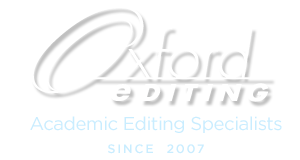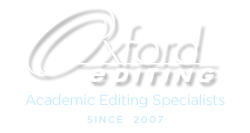Writing an abstract for a scientific paper
Abstract writing can be tricky. Luckily, resources for academic writers abound on the web. Below are two useful lists on writing an abstract from Rice University. The first list covers content, the second, style.
Summarize the study, including the following elements in any abstract. Try to keep the first two items to no more than one sentence each.
- Purpose of the study – hypothesis, overall question, objective
- Model organism or system and brief description of the experiment
- Results, including specific data – if the results are quantitative in nature, report quantitative data; results of any statistical analysis shoud be reported
- Important conclusions or questions that follow from the experiment(s)
Style
- Single paragraph, and concise
- As a summary of work done, it is always written in past tense
- An abstract should stand on its own, and not refer to any other part of the paper such as a figure or table
- Focus on summarizing results – limit background information to a sentence or two, if absolutely necessary
- What you report in an abstract must be consistent with what you reported in the paper
- Corrrect spelling, clarity of sentences and phrases, and proper reporting of quantities (proper units, significant figures) are just as important in an abstract as they are anywhere else
The Conclusion
The conclusion deserves a special note. Because it must outline the paper’s specific or broad contributions, it may require some soul searching, or at least some deep thinking to avoid sounding lackluster. If your conclusion is generic, vague, or unsurprising, you will not only fail to impress your reviewers but you will also discourage potential readers from bothering to read your article. While there is no formula for writing the conclusion, this tutorial paper, from the Tufts University Academic Resource Center, suggests that you begin the abstract with a motivation or problem statement that discusses why the problem your research addresses is significant or what practical, theoretical, scientific or artistic gap your research fills. If you have done this, you can then discuss, in the conclusion, “the larger implications of your findings, especially for the problem or gap identified in the motivation statement.”
Purdue’s OWL (Online Writing Lab), which offers extensive general academic writing advice, also offers help with abstract writing.
In sum, many university websites offer these and other resources to help you improve your writing of abstracts, as well as other elements of academic writing.
©Susan Hatch Morgan and Oxford Editing, 2015. Unauthorized use and/or duplication of this material without express and written permission from this blog’s author or owner is strictly prohibited. Excerpts and links may be used, provided that full and clear credit is given to Susan Hatch Morgan and Oxford Editing with appropriate and specific direction to the original content.
Please Share This

